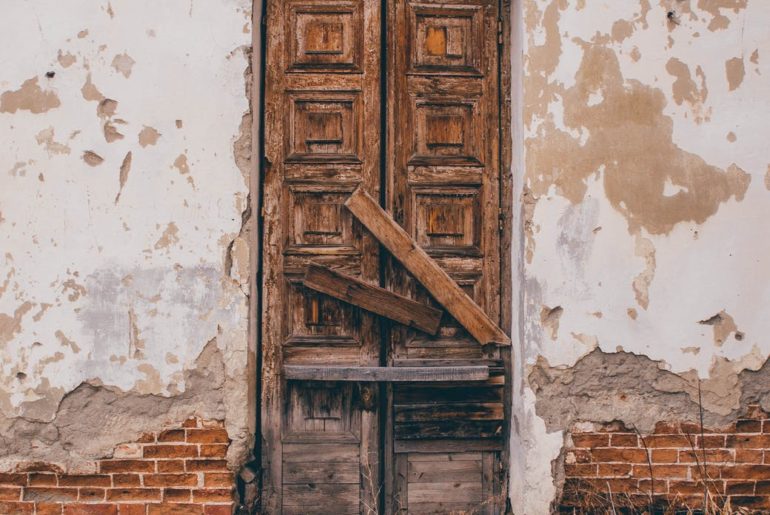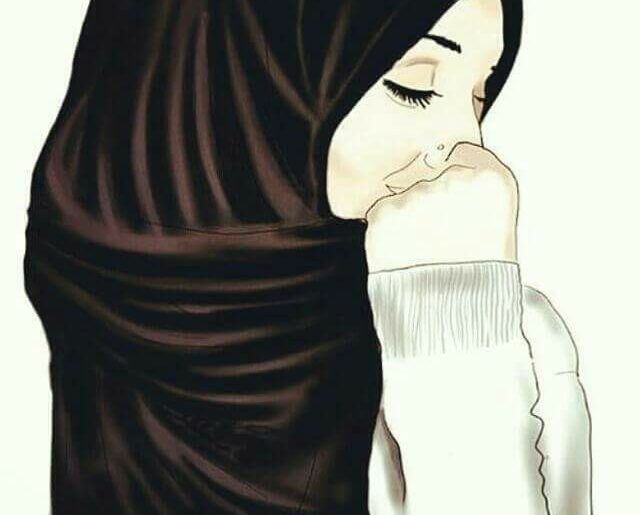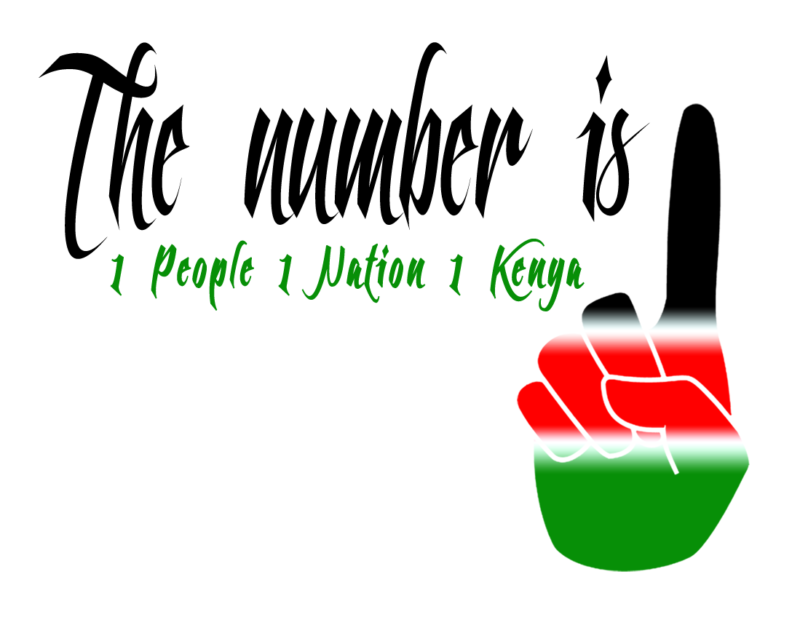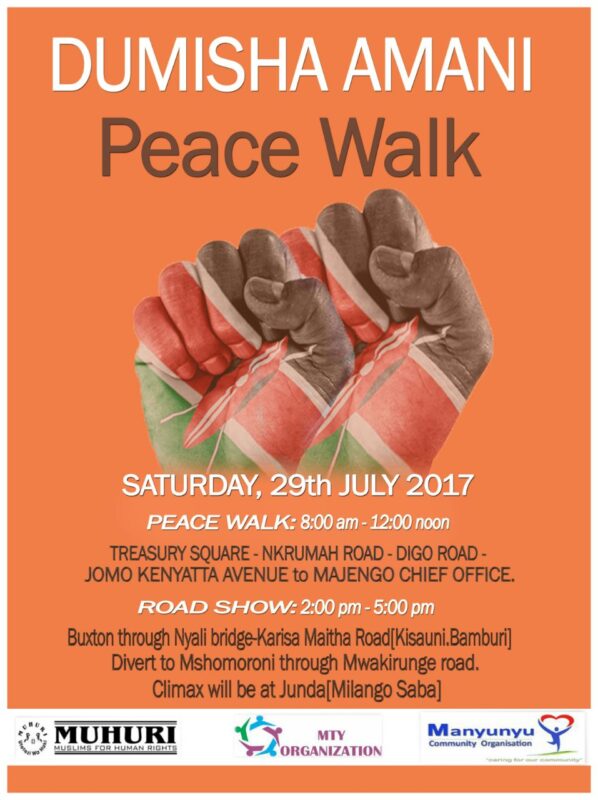To read part 3, kindly click here
Broken Homes
The Swahilis have a saying that goes like, ‘Ndoa ni kuingiza mkono gizani’ (Marriage is like putting your hand into darkness (let’s say like a dark hole of sorts). This is to mean that whatever comes after the nikah is done is totally uncertain and unknown. However much you might think you know a person before marriage, this new phase is something totally different. It is unpredictable. It is filled with surprises and sometimes shocks too. And a lot of patience is needed.
Marriage is not a bed of roses just like it isn’t an absolute nightmare. There will always be highs and lows. Yet if you ask anyone who is walking into marriage no one will ever tell you that they intend to get divorced after two or three years. No one wants that for themselves and no one even expects it. We all dream of happy, blissful homes, and despite the ups and downs, we want to stay with our partners until our hair turns grey and our faces are filled with wrinkles. We want to have children who will be brilliant in intellect and wonderful in character and who will serve us until our final breath. However, that is not always the reality.
How many times have we heard of cases of domestic violence or emotional abuse or infidelity among spouses? Of fathers raping their children and mothers forming romantic relationships with their sons? Of once very loving partners now dragging each other in courts of law and hanging their dirty linen outside? Of children attempting to kill their own parents or siblings? How many times? It is so easy for us to think, ‘that could never be me’ yet how many times have we witnessed the tables turn, and in the worst way possible?
Most of us fail to realize how fragile our fates are and how we are in desperate need of Allah’s mercy and protection. Don’t let it confuse you-not every spoilt, criminal child is a result of a poor upbringing, and not every divorced partner is a result of awful character. For how many times have we witnessed pious, humble spouses from good families having the cruelest children who were but a test to them? And how many times have we seen two good individuals who were better in their separate ways rather than in a marriage? And how many negligent parents have the most responsible and kind children?
Allah Subhanahu Wataala says in Surat Al Furqan, verse 20: ‘…And We have made some of you [people] as trial for others – will you have patience? And ever is your Lord, Seeing.’
Think about it- Nabii Lut’s wife, Nabii Nuh’s son, Nabii Ibrahim’s father were among the disbelievers. Nabii Yusuf’s brothers were the plotters against him, and Asiya’s husband, Fira’un, was the worst man to have walked this earth….
Think about the boy who was killed by Al Khidr during his journey with Nabii Musa aleyhi ssalam in Surat Kahf (verse 80 – 81) And Al Khidr explains to Nabii Musa why he ended the boy’s life in this verse:
“And as for the boy, his parents were ˹true˺ believers, and we feared that he would pressure them into defiance and disbelief. So we hoped that their Lord would give them another, more virtuous and caring in his place.”
This was a mercy from Allah to the parents-saving them from a child who was potentially going to mislead them. Yet sometimes Allah allows the child to live on and become a test to his parents.
Similarly, think of the case of Zaid ibn Harith (the adopted son of the prophet peace be upon him) who had to divorce Zeinab bint Jahsh because of the troubles in their marriage despite both of them being among the sahabas; good, pious people. And Allah Subhanahu Wataala revealed to the prophet peace be upon him to marry Zeinab after the divorce (And this was to show the validity of marrying an adopted son’s ex-wife).
…The list goes on and on. Weren’t these prophets and most pious individuals? Yet they too endured tests within their families Subhanallah.
'O you who have believed, indeed, among your spouses and your children are enemies to you, so beware of them. But if you pardon and overlook and forgive - then indeed, Allāh is Forgiving and Merciful. Your wealth and your children are but a trial, and Allah has with Him a great reward.'
(Surat At-Taghabun, verse 14 - 15)
When I was younger I used to think that if a spouse is pious and affectionate with their spouse, and they raised their children upon the deen then nothing could ever go wrong. But boy, didn’t life open up my eyes? It is very scary and sad when we look around our own families and friends’ marriages and see the kind of struggles people have to endure. And for every one person that I meet that says, ‘Get married, it is such a beautiful thing’ I meet four others who say, ‘Don’t rush. Take your time for what awaits on the other side is not a joke.’ It is even more heartbreaking to see what children have to endure as a result of broken homes or the kind of monsters created within them from the experiences they endure. Or sometimes we see parents violate and abuse their own children and vice versa, and it really terrifies me that none of us is guaranteed an upright spouse who will fear Allah on you and your children or children who will honour you after you gave them the best kind of upbringing.
It all goes back to what Allah has decreed upon us- and sometimes, these same people who are meant to be blessings, become the hardest trials upon us (May Allah protect us). I think it is timely to say that, the next time you see someone in a tough marriage, or who is divorced, don’t be quick to judge their character or religiosity. Just the same way when you see a child abusing drugs or harming his/her own family members, don’t be quick to point fingers at the parents for poor upbringing. And of course, these trials are not necessarily only within the direct family. Sometimes the in-laws are the test, or one’s parents or grandparents, or siblings or extended family.
Truly life is not simply black and white. If anything, whenever we see someone suffering at the hands of their own people, or when we see people harming their own loved ones, we should be quick to make dua for them and for ourselves, our children, and our families -for very very easily could we be tested the same exact way or worse.
*
Ya Allah, we come to you with our hopes and fears with regards to our homes.
Ya Allah, please grant us peaceful homes that will be filled with Your remembrance. Please grant us spouses, children, families and in-laws who will be huge blessings to us, and us to them. Ya Allah, please do not test us with our spouses, children, parents, siblings, families or in-laws. Ya Allah make our families have the fear of You with regards to us and enable us to be among Your most beloved worshippers.
Ya Allah, please grant us spouses who will bring us closer to you. Who will be merciful, kind and compassionate towards us throughout the highs and lows of life. Ya Allah make them fit in well with our families and let us fit well with their families. Ya Allah make our spouses honour our parents like their own and make us do the same for their parents. Ya Allah grant us an understanding of one another, patience towards each others’ shortcomings and love and mercy that lasts till Jannah.
Ya Allah grant us offsprings who will grow up in Your remembrance; who will love You and dedicate their lives to your worship. Ya Allah make Your book, the Qur’an, beloved to them and to us, and make them among those who not only recite it beautifully but memorize it and apply its teachings to their lives.
Ya Allah, if you have written for us spouses and offspring who will be a test for us, we beg You to change that fate for us and grant us in their place spouses and offspring who will be a huge blessing to us.
Ya Allah make our spouses, children, and families feel most safe with us, and may we feel most safe with them. Ya Allah protect us from divorce, and unhappy marriages that can only be survived and endured, and lifeless marriages that lack love and compassion, and ungrateful children and displeasure of parents and cruelty of in-laws.
Ya Allah please bless our homes and protect us from all evil, conflict, ayn, hasad and sihr.
رَبَّنَا هَبْ لَنَا مِنْ أَزْوَاجِنَا وَذُرِّيَّاتِنَا قُرَّةَ أَعْيُنٍ وَاجْعَلْنَا لِلْمُتَّقِينَ إِمَامًا
‘Our Lord, grant us from among our wives and offspring comfort to our eyes and make us an example for the righteous.’
رَبِّ هَبْ لِي مِنَ الصَّالِحِينَ
‘My Lord! Bless me with righteous offspring.’
رَبِّ اجْعَلْنِي مُقِيمَ الصَّلَاةِ وَمِنْ ذُرِّيَّتِي ۚ رَبَّنَا وَتَقَبَّلْ دُعَاءِ
‘My Lord, make me an establisher of prayer, and from my descendants. Our Lord, and accept my supplication.’
رَبَّنَا وَٱجْعَلْنَا مُسْلِمَيْنِ لَكَ وَمِن ذُرِّيَّتِنَآ أُمَّةًۭ مُّسْلِمَةًۭ لَّكَ وَأَرِنَا مَنَاسِكَنَا وَتُبْ عَلَيْنَآ ۖ إِنَّكَ أَنتَ ٱلتَّوَّابُ ٱلرَّحِيمُ
‘Our Lord! Make us submissive to You and make out of our descendants a community that submits itself to You, and show us the ways of Your worship, and turn to us in mercy. You are Much-Relenting, Most Compassionate.’
رَبِّ أَوْزِعْنِي أَنْ أَشْكُرَ نِعْمَتَكَ الَّتِي أَنْعَمْتَ عَلَيَّ وَعَلَىٰ وَالِدَيَّ وَأَنْ أَعْمَلَ صَالِحًا تَرْضَاهُ وَأَصْلِحْ لِي فِي ذُرِّيَّتِي ۖ إِنِّي تُبْتُ إِلَيْكَ وَإِنِّي مِنَ الْمُسْلِمِين
‘My Lord! Inspire me to ˹always˺ be thankful for Your favours which You blessed me and my parents with, and to do good deeds that please You. And instil righteousness in my offspring. I truly repent to You, and I truly submit ˹to Your Will˺.’
رَبِّ هَبْ لِي مِنْ لَدُنْكَ ذُرِّيَّةً طَيِّبَةً ۖ إِنَّكَ سَمِيعُ الدُّعَاءِ
‘My Lord, grant me from Yourself a good offspring. Indeed, You are the Hearer of supplication.’
اللَّهُمَّ أَلِّفْ بَيْنَ قُلُوبِنَا وَأَصْلِحْ ذَاتَ بَيْنِنَا وَاهْدِنَا سُبُلَ السَّلاَمِ وَنَجِّنَا مِنَ الظُّلُمَاتِ إِلَى النُّورِ وَجَنِّبْنَا الْفَوَاحِشَ مَا ظَهَرَ مِنْهَا وَمَا بَطَنَ وَبَارِكْ لَنَا فِي أَسْمَاعِنَا وَأَبْصَارِنَا وَقُلُوبِنَا وَأَزْوَاجِنَا وَذُرِّيَّاتِنَا وَتُبْ عَلَيْنَا إِنَّكَ أَنْتَ التَّوَّابُ الرَّحِيمُ وَاجْعَلْنَا شَاكِرِينَ لِنِعْمَتِكَ مُثْنِينَ بِهَا قَابِلِيهَا وَأَتِمَّهَا عَلَيْنَا.
‘O Allah, join our hearts, mend our social relationship, guide us to the path of peace, bring us from darkness to light, save us from obscenities, outward or inward, and bless our ears, our eyes, our hearts, our wives, our children, and relent toward us; Thou art the Relenting, the Merciful. And make us grateful for Thy blessing and make us praise it while accepting it and give it to us in full.’
Ameen ameen ameen!
***
Alhamdulilah we are blessed to be alive within the last ten days of Ramadhan. May Allah grant us the chance to experience laylatul qadr while in worship. May He grant us redemption, accept our good deeds and elevate our status, ameen!
Kindly subscribe below to stay tuned with part 5 of this series: ‘Getting attached to the Dunya’ in Shaa Allah. And please share the link to your networks, shukran! Stay blessed in shaa Allah 🙂






![THE GREATNESS OF PROPHET MUHAMMAD (P.B.U.H) [PT. 4]](https://lubnah.me.ke/wp-content/uploads/2019/01/atlantic-3757677_960_720-770x515.jpg)





